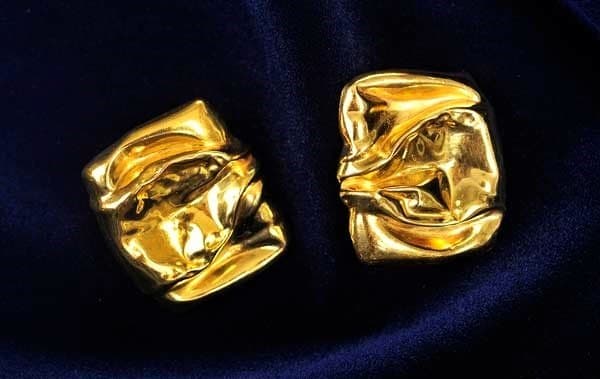What’s Different about This Easter? — Vaneetha Risner

I usually don’t think much about Lent until right before Easter, when I feel guilty that I’ve missed the most important season on the Christian calendar. I resolve to do better the following year but rarely do.
But on Ash Wednesday as I started Paul Tripp’s Lenten devotional, Journey to the Cross, I realized this year could be different. On Day One, Tripp begins by describing how he wept over his sin when he came to Christ. He asks the question, “In a typical week, how aware are you of the depth of your sin? When was the last time you wept over your sin?” (14).
The last time I wept over my sin? I actually couldn’t remember ever weeping over my sin. Maybe weeping over the consequences of my sin. Or weeping over my suffering. But not my sin itself.
I am embarrassed to say that I couldn’t think of anything I’d done that seemed that bad that I needed to weep over. Confess? Definitely. Repent? Of course. But weep?
As I write this, I am well aware of what a stirring indictment that is of me and how casually I took my sin. Thankfully, in the last several weeks, the Lord has convicted me about more things than I have space to write about and I have finally wept over my sin. And there is still more weeping to do.
To capture what I’ve learned, I’m answering the questions Tripp poses on page 195 of Journey to the Cross – at the end of Day 34.
Taking stock of the past thirty-three days, what is God convicting you of?
There are many issues that the Lord has brought to light, but I’m only giving you three. You’re welcome.
I don’t genuinely love others. I love those who love me, who affirm what I do, who appreciate my efforts. But I secretly resent those who dismiss me or who are unappreciative or critical of my actions. As I read Romans 12:9-10, I saw how superficial my love was. Paul says, “Let love be genuine. Abhor what is evil; hold fast to what is good. Love one another with brotherly affection. Outdo one another in showing honor.” Jesus says, “For if you love those who love you, what reward do you have? Do not even the tax collectors do the same?” (Matt 5:46). I’m probably somewhere between a tax collector and Pharisee on that one.
I’m defensive when criticized. I immediately feel misunderstood, rush to my own defense, justify and excuse any correction leveled against me. I’m not open or approachable because I’m sure I’m right. Tripp says, “one of the most significant aspects of the deceitfulness of sin is our ability to swindle ourselves into thinking that we are seldom at fault.” (56). He goes on to say, “I fell into the trap that many of us fall into. We succumb to believing that no one knows us better than we know ourselves. There is no more dangerous aspect of sin’s deceitfulness than this one” (85-86).
I am envious of others who have what I want. My struggle is not with material possessions as much as other people’s success. This is embarrassing to admit because I once prided myself (a telling emotion) on not caring about worldly things like platform or book sales. I’m a Christian writer after all. But as I evaluated what makes me happy and what makes me agitated, I realized that public approval had a dangerous hold on me.
What changes have you decided to make, and how are those changes going?
I launched my memoir in mid-January and regularly checked Amazon ratings and reviews, sometimes multiple times a day. It wasn’t healthy. I’d also look at other authors who launched books around the same time as mine to see how theirs were doing. I either felt great that mine was performing better (pride) or horrible that mine was doing much worse (envy). Neither went anywhere good. Then I read Tripp’s admonition on Day 4 to “let go of things you tend to prize” followed by the question: “What do you need to give up, for a season or more permanently, to root the idols out of your heart?” (32).
I immediately knew that I needed to stop looking at ratings, reviews, and sales of my book. I wrote my memoir because I wanted to glorify God, but somewhere along the way, I became focused on wanting people to admire me. So I haven’t looked on Amazon for six weeks and it has felt incredibly freeing. I can focus more on what God is calling me to do rather worrying about the praise of men. As I write, I am reevaluating what I should do after Lent is over.
What fresh perspective have you gained on what the death, burial, and resurrection of Jesus mean to you?
The cross has become much more precious to me. I believed the gospel for years, but I took it for granted. Excusing, denying, and minimizing my sin numbed me to my need for transforming grace – I didn’t see my desperate need to be forgiven. But this Lent, as I have looked more closely at my sin, I see the ugliness of my pride, my defensiveness, my lack of love and my desire for approval. And with that knowledge, I am more grateful for the cross. I am more in love with Jesus. I am more in awe of grace. As Paul Tripp says, “When you convince yourself that your sin is not so sinful after all, you also convince yourself that you don’t need God’s amazing, rescuing, forgiving, and transforming grace” (56).
And if that news isn’t amazing enough, God doesn’t just pardon our sin, but he transforms us by his Spirit. God changes us and sets us free from our bondage to sin, so we can walk in newness of life (Romans 6:1-4). As Tripp says, “The cross doesn’t just purchase God’s forgiveness for us, but it also changes us” (70). It’s one thing to know the truth of the gospel, but it’s quite another to experience it.
I’ve been reading Romans this month, marveling at all Christ has done. This verse brought me to tears: “Because of our faith, Christ has brought us into this place of undeserved privilege where we now stand, and we confidently and joyfully look forward to sharing God’s glory” (Romans 5:2 NLT).











